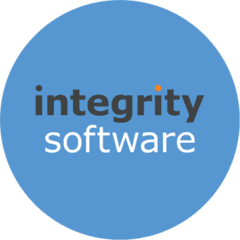Accurate construction job costing is vital for every construction business. It enables you to keep projects within budget, protect profit margins and maintain a healthy cash flow. Without a reliable costing system in place, construction companies can quickly lose track of expenses, leading to overspending and reduced profitability.
While job costing is used in many industries, it plays an especially crucial role in construction due to the complex and variable nature of each project. From labour and materials to equipment and overheads, tracking and allocating every cost accurately can be the difference between a profitable project and a loss-making one.
This comprehensive guide explores the fundamentals of construction job costing, explains why it’s essential for your business, and shows you how to improve it using modern software solutions.
What Is Construction Job Costing?
Construction job costing is a detailed accounting process used to track and manage the actual costs associated with a specific construction project. Rather than using general budgets, job costing breaks down each project into granular categories – such as labour, materials, equipment and overheads – so you can allocate and monitor spending in real time.
The goal is to understand the true cost of each project and compare it against estimates. This provides valuable insights into profit margins, highlights overspending before it gets out of hand and supports smarter decision-making across future projects.
Key Components of Construction Job Costing
1. Labour Costs
Labour is often one of the largest and most variable expenses on a construction job. With accurate construction job costing, you can track how much time workers spend on specific tasks and how that translates into cost.
When calculating labour costs, be sure to include:
- Base wages and salaries
- Overtime
- Payroll taxes
- Employee benefits
- Insurance
- Travel and other related expenses
Monitoring labour closely allows you to identify inefficiencies and spot potential budget overruns before they impact the bottom line.
2. Material Costs
Another essential element of construction job costing is materials – both direct and indirect. Direct materials are the primary inputs needed for construction (concrete, steel, timber), while indirect materials include smaller items like nails, adhesives, and safety gear.
Accurate tracking of material usage and prices can help you:
- Reduce waste
- Improve procurement planning
- Forecast project budgets more precisely
Rising material costs can quickly erode margins, so staying on top of this category is critical.
3. Overhead Costs
Overheads refer to the general business expenses that support project delivery but aren’t tied to one specific job. These might include:
- Office rent and utilities
- Admin staff salaries
- Business insurance
- Software subscriptions
- Marketing and legal fees
In construction job costing, overheads are typically distributed across multiple projects based on predetermined allocation methods. While overheads may not seem as urgent as labour or materials, underestimating them can distort your project’s profitability.
Why Accurate Construction Job Costing Matters
The benefits of precise construction job costing extend well beyond budgeting:
Improved Cash Flow
Knowing exactly what’s being spent – and when – helps ensure you maintain positive cash flow throughout the project.
Profit Margin Protection
By comparing actual costs with estimates, you can quickly identify discrepancies and act to preserve your profit margins.
Informed Decision-Making
Historical costing data helps you bid more accurately on future projects and avoid underpricing your services.
Reduced Risk of Overruns
With better visibility into costs, you can prevent overspending before it becomes a financial problem.
Ultimately, effective job costing improves project performance, client satisfaction, and business sustainability.
Modern Solutions for Construction Job Costing
While job costing can be done manually using spreadsheets or paper-based systems, this method is time-consuming, error-prone and lacks real-time visibility. The smarter solution is to use specialised construction job costing software that automates and integrates your costing processes.
One powerful example is Evolution Mx by Integrity Software. This construction-specific accounting and management platform offers a fully integrated suite of tools for:
- Job costing and forecasting
- Subcontractor management
- Applications and retentions
- Budget tracking and reporting
- Payroll and compliance
By centralising and automating your job costing process, Evolution Mx helps you eliminate errors, improve efficiency and gain accurate insights into your project finances – all in real time.
Take Control of Your Construction Job Costing
If you’re still relying on spreadsheets or outdated systems to manage your project costs, it’s time to upgrade. Accurate construction job costing is no longer a luxury – it’s a necessity in today’s competitive environment.
To learn more about how our construction-specific software can help streamline your job costing process and boost profitability, book a free, no-obligation demo of Evolution Mx today.

